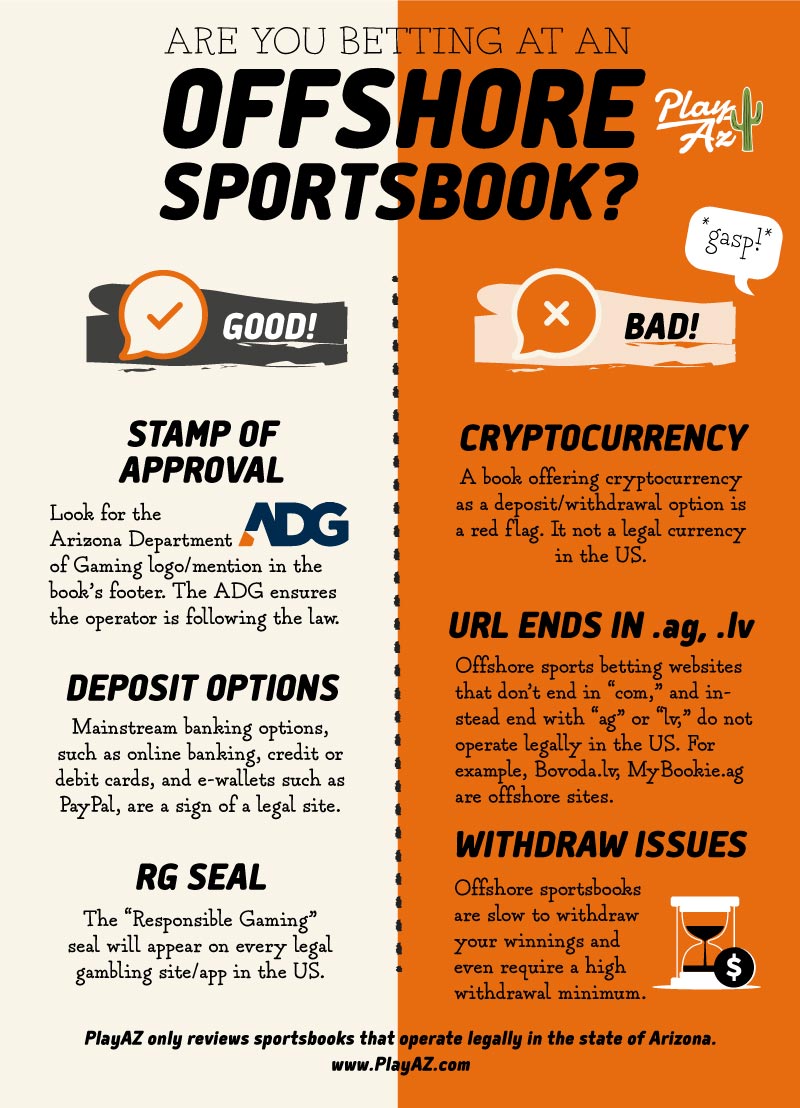
Sports betting is a booming industry, but it came from humble beginnings. Despite the legalization of sports betting in many states, offshore sportsbooks still exist. Here’s how to tell if you’re using an illegal, offshore sportsbook.
The “offshore” name derives from the country the site operates in — as in not the United States. Books that operate outside the states do not reside under the US umbrella. The Caribbean and Central America are home to many offshore sites.
Licensed US sportsbooks put safety first
No regulations surround offshore betting sites. This concept sounds fun until you consider you’re putting your money at risk. At legal sportsbooks in Arizona, the state requires that the sites follow the rules and regulations that protect you, the sports betting customer.
Because of this, money deposited into a licensed sportsbook is under protection, but the same can’t be said for offshore sites. There have been instances where users of offshore sites had their balance wiped out without any resolution from a customer support team.
With a licensed sportsbook, the regulating bodies in a particular state are formed to police the sportsbooks and prevent dishonesty or bad business.
The site you bet with is equally as crucial as the teams you bet on, and going through a licensed sportsbook is the safest option.
Also, licensed sportsbooks are constantly competing with each other for users. So they’ll always offer deposit bonuses, referral bonuses, odds boosters, promotions, etc., to gain your loyalty as a customer.

Separate legal sportsbooks from illegal ones
There are many distinguishing characteristics of licensed sportsbooks — FanDuel, DraftKings and BetMGM — from offshore sportsbooks — Bovada, MyBookie and BetDSI. It’s important to know what you’re looking for to make the proper identification, because if you look at a sportsbooks dashboard, it can be difficult to tell.
Warning sign No. 1: Funky URL
Licensed sportsbooks all have URLs ending with .com. Offshore sites will have URLs ending in .ag, .lv, or .eu, amongst others.
Each of these signifies the country from which the website operates. If you can remember to check the URL before even looking at the website’s homepage, it can help make the distinction immediately.
Warning sign No. 2: Cryptocurrency
Many offshore sportsbooks will allow users to deposit cryptocurrency as playable funds. No licensed sportsbook in the US will allow this illegal US currency. So, if you see Bitcoin mentioned anywhere, you’re likely on an offshore sportsbook.
Offshore operators sometimes allow bettors to transfer their funds into a friend’s account and bet with that money.
Warning sign No. 3: Lack of regulation seal
On licensed sportsbooks, you can scroll to the bottom of any page or bottom of an app and find an emblem from the state’s gaming regulation board. In Arizona, the regulatory body is the Arizona Department of Gaming. You’ll be hard-pressed to find this marking on an offshore site.







